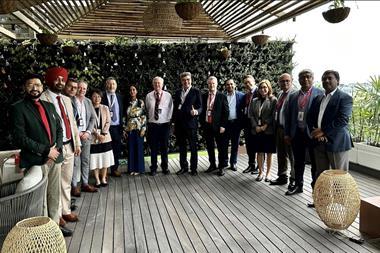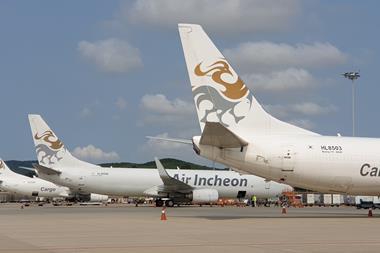Hong Kong International Airport (HKIA) has been recognised as a Partner Airport of IATA’s CEIV Pharma programme.
HKIA said it is one of the few airports to achieve this airport-wide certification, meaning it has "demonstrated expertise in handling the entire airside pharmaceutical transportation process end-to-end, from the time an aircraft lands to releasing the pharmaceuticals to agents, and vice versa".
The world’s leading hub offers an electronic clearance system and 24-hour, round-the-clock customs services at the cargo terminals.
HKIA’s three cargo terminals - Asia Airfreight Terminal Limited, Cathay Pacific Services Limited and Hong Kong Air Cargo Terminals Limited - and three ramp handling operators - Hong Kong Airport Services Limited, Jardine Aviation Services Limited and SATS HK -, along with a local base carrier, Cathay Pacific Group, have also achieved IATA CEIV Pharma Certification.
IATA regional vice president for north Asia Zhang Baojian said: “The shipping of pharmaceutical products is the fastest growing segment in the air freight industry.
“Given the sensitive nature of the products, it is necessary to establish global standards and best practices to ensure the integrity of pharmaceutical products is not compromised when they are shipped by air.
“Having undergone a rigorous assessment for the CEIV Pharma certification, HKIA’s community stakeholders are well placed to serve this important segment of the air cargo industry.”
The compound annual growth rate of global cool pharma air trade during the period of 2005-2016 was 5.4%, above the 1.8% growth for total global air trade recorded over the same period.
In the past four years, HKIA experienced an annual 12% growth in pharma tonnage. HKIA’s growth rate for pharma tonnage is expected to reach over 16% per annum from 2016 to 2023.
To support the growth, the AA will continue to invest in its cold chain facilities, for instance, by investing HK$16 million to purchase 21 more cool dollies this year.
In addition, HKIA has more than 5,000 sq m of cold room storage in its three cargo terminals, which provide dedicated rooms at a range of temperatures from -20 degrees Celsius to 25 degrees Celsius.
Read more pharma logistics news










